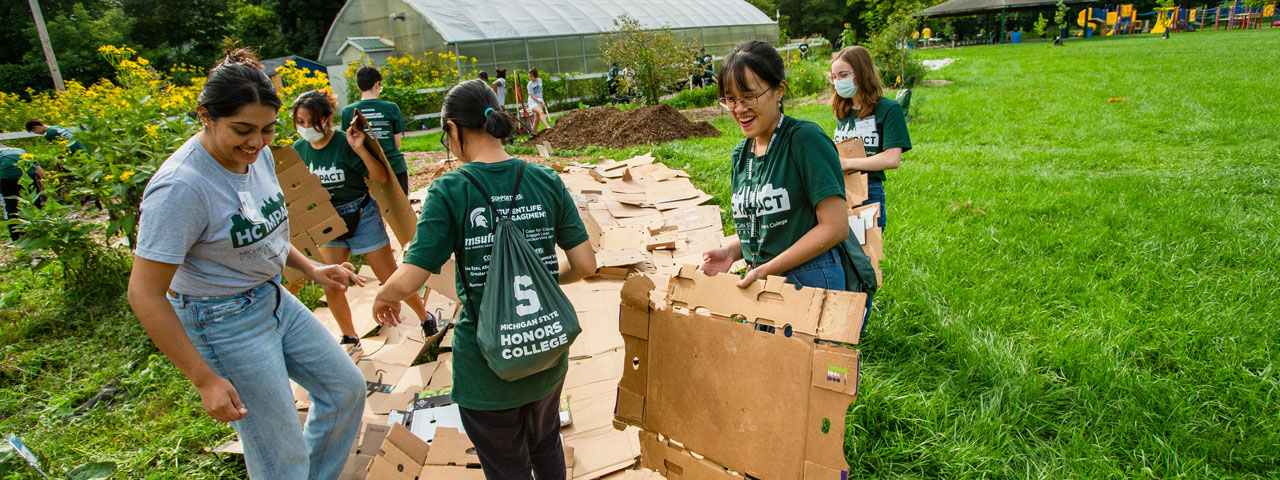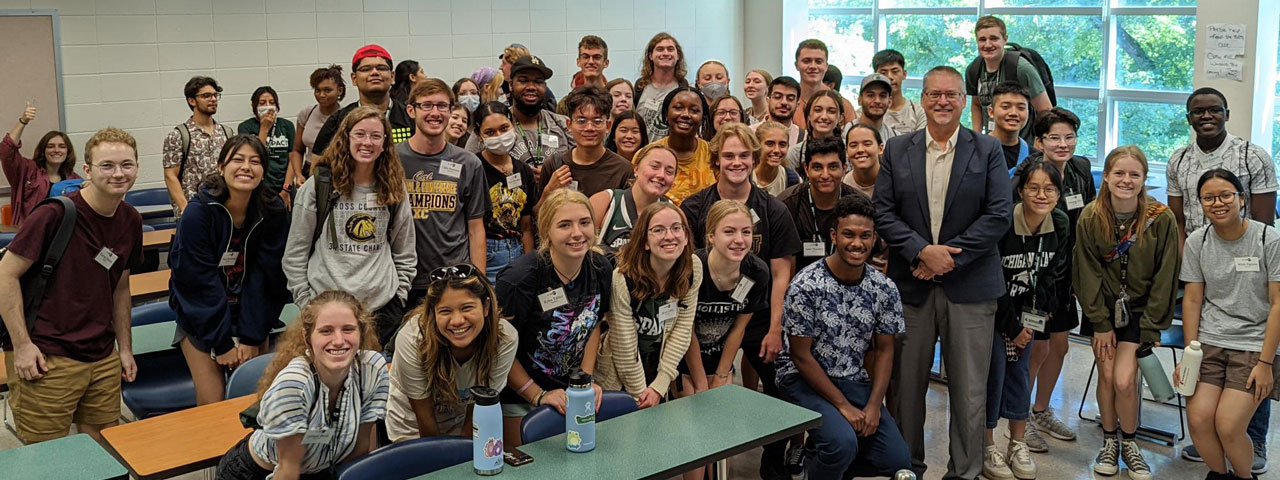Honors College HC Impact Week of Service

HC Impact prepares students for lifelong community engagement, thanks to a strong partnership between the MSU Honors College and CCEL.
The Honors College's week of service is open to incoming Honors College and Academic Scholars Program members, who spend the week before their fall classes learning about social inequity and inequality and working with various community organizations in the Greater Lansing area. The program extends into the academic year in conjunction with an Honors first-year seminar course (UGS 201H), which provides students with the opportunity to continue their service experiences with a community organization of their choice that addresses social inequity in Lansing.
According to Bess German, Ph.D., assistant dean of the Honors College and instructor of UGS 201H, the combination of education and early exposure to the community is essential to the HC Impact student experience. “The idea was to get early college students involved in community engagement and learning about local nonprofit organizations who were doing work to advance equity and to make a difference in our community,” she said. The seminar course builds on that experience. “We didn't want community engagement to stop with a week-long engagement at the beginning of the year,” German said.

Students in UGS 201H complete 24 hours of service with a community partner that aligns with their passions, allowing them to continue their learning and engagement. “We wanted students to think about how they could continue to be engaged, and we also wanted them to think about how they particularly can bring their talents and interests to that work,” German said. “So we ask them in the fall semester to think about what local organization makes sense for them to continue their work.”
Last year's students worked with 17 different partner organizations and completed over 1,000 hours of engagement, which German says benefits both the students and the community in important ways. “I think the students probably gain even more than the community does, because [students can be] very new people to our community, and they gain an appreciation for what's beyond MSU's doors. And as they see how passionate people are in our local community, I think they start to see connections between their lived experience and the lived experiences of people who are very different from them. Often, they see similarities as well, which can be equally valuable.”
“And I think the community gains an incredibly energetic group of people who have social justice at the heart of what they want to do in the world. And they're bringing their new energy, and sometimes that means that community partners are freed up to do other things … or maybe there's some other way that they're relieving pressure.”
The partnership between HC Impact and CCEL has been crucial to the success of this program, according to German, who recounted the many times that she and Program Coordinator Erika Crews have taken advantage of the resources provided by CCEL. “I think [Erika] and I both feel like our work is so much better. It's so much easier to work in our community because of the relationships that CCEL has, and honestly the training that they've done [with] us through workshops and other events on campus.”
In addition to the workshops and events facilitated by CCEL's Academic Programs team, German said she is especially thankful for CCEL's Transportation Support Award (TSA), which has enabled students to continue building relationships in the Greater Lansing community. “How cool is it that there's an opportunity for transportation help? There was a case last year where we had a community partner … we had interested students, but we had no way for them to get out there once a week. So it was perfect—there's an opportunity, there's a resource … to connect the need of the community partner with our students and getting our students there.”
Overall, German hopes that the program can continue to show students the importance of community engagement and the impact they can have on positive social change. “My hope is that they take this experience and they are able to continue on and be lifelong contributors, people that are always community engaged,” she said. “I know they probably won't work in these organizations forever, but maybe it helps them see themselves as an agent for the future in creating equitable communities and being part of what makes a community equitable.”


